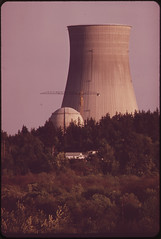After the devastating 8.8 earthquake and subsequent tsunami that struck Japan last week, millions are without power, adequate food or water supply. The earthquake was so powerful, that Japan moved 8 feet and the axis of the Earth shifted. The human death toll is still being determined, however, recent reports are comparing this natural disaster to the massive destruction caused during WWII; nothing has taken a similar toll on Japan since.
To add confusion to chaos, Japan is now dealing with a number of nuclear power plans that may face possible meltdown. A cause for local and global concern, Japanese officials have resorted to using sea water to cool a reactor that exploded a couple of days ago in hopes to keep it under control while electricity supplies remain down. Countries like France have begun using Japan as an example of why nuclear energy is too dangerous too rely upon for energy use. This argument however brings up the classic question: If not nuclear, then what? Nuclear does not contribute to harmful GHG emissions which contribute to climate change. Do we then regress to using coal on a massive scale? Nuclear, and proponents of nuclear energy, argue it’s the “cleaner” alternative to fossil fuels — although waste and potential nuclear meltdown, as what’s currently on display in Japan — remain serious concerns. Solar and wind technologies, while actively in use in many countries including the U.S., still remain at a high market cost, particularly solar, and are thus not able to complete with the cheaper, fossil fuel competitors that currently supply the bulk of the planet’s energy supply. It’s a sticky situation with many political and industry incentives at stake, but in the end, the fallout of nuclear energy may not be worth the energy it produces.
We are all hoping a full nuclear meltdown at one or more of the nuclear power plants does not occur on top of what the Japanese are already enduring, but at present time, it’s unclear what the outcome will be. Japan is receiving international aid, yet this tragedy will take many weeks, months, if not years to recover from. If you want to help, the American Red Cross is accepting donations: http://www.redcross.org.

